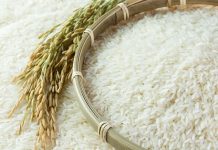
BANGKOK, Thailand –– The Department of Medical Services, through the Neurological Institute, Dec 8, has issued a warning about the dangers of neck massages, highlighting that the neck houses critical structures like blood vessels and bones, not just muscles. Incorrect techniques can result in life-altering consequences, including paralysis or even death, as the cervical vertebrae have limited mobility and are highly sensitive.
Dr. Saranya Yuttakovit, a specialist at the Neurological Institute, emphasized that the neck contains vital blood vessels supplying the brain. Even physical therapy in this area requires supervision and regular evaluation by medical professionals. Applying excessive pressure or incorrect techniques during a massage can cause serious damage, such as tearing blood vessels, leading to conditions like paralysis. Cases have even been reported in individuals as young as 20-30 years old.
In cases involving fatalities, X-rays revealed that the victims likely had pre-existing cervical disc degeneration. This condition, commonly found in individuals aged 40-50 and older, can worsen with massage, potentially compressing nerves and the spinal cord.
Dr. Saranya further explained that cervical disc degeneration is a natural part of aging, often caused by repetitive neck movements. While it may lead to pain and stiffness, she strongly discouraged twisting or forcefully rotating the neck during massages. The human neck has seven vertebrae, with only the first two allowing rotation of up to 150 degrees. Other vertebrae have much more
restricted mobility (50-60 degrees), making aggressive manipulation dangerous and potentially fatal.
Meanwhile, Dr. Akhom Praditsuwan, Deputy Director-General of the Department of Health Service Support (HSS), stated that investigations are underway to determine whether the massage clinic involved in the recent fatal case was licensed and followed traditional Thai massage standards. He emphasized that all massage establishments must adhere to the Health Establishment Act and obtain proper permits from provincial health offices.
The investigation will examine whether the massage followed correct practices and whether it caused harm to the client, especially as many modern massage techniques deviate from traditional standards. (TNA)










